A Tory is an individual who supports a political philosophy known as Toryism, based on a British version of traditionalist conservatism which upholds the established social order as it has evolved through the history of Great Britain. The Tory ethos has been summed up with the phrase "God, King, and Country". Tories are monarchists, were historically of a high church Anglican religious heritage, and were opposed to the liberalism of the Whig party.

The Nationalist Party, also known as the National Party, was an Australian political party. It was formed in February 1917 from a merger between the Liberal Party and the National Labor Party, the latter formed by Prime Minister Billy Hughes and his supporters after the 1916 Labor Party split over World War I conscription. The Nationalist Party was established as a 'united' non-Labor opposition that had remained a political trend once the Labor party established itself in federal politics. The party was in government until electoral defeat in 1929. From that time it was the main opposition to the Labor Party until it merged with pro-Joseph Lyons Labor defectors to form the United Australia Party (UAP) in 1931. The party is a direct ancestor of the Liberal Party of Australia, the main centre-right party in Australia.

John Thomas Lang, nicknamed "The Big Fella", was an Australian politician. He served two terms as premier of New South Wales, in office from 1925 to 1927 and from 1930 to 1932. He was the state leader of the Australian Labor Party (ALP) from 1923 to 1939 and his Lang Labor faction was an influential force in both state and federal politics, breaking away from the official ALP on several occasions.

The Communist Party of Australia (CPA), known as the Australian Communist Party (ACP) from 1944 to 1951, was an Australian communist party founded in 1920. The party existed until roughly 1991, with its membership and influence having been in a steady decline since its peak in 1945. Like most communist parties in the West, the party was heavily involved in the labour movement and the trade unions. Its membership, popularity and influence grew significantly during most of the interwar period before reaching its climax in 1945, where the party achieved a membership of slightly above 22,000 members. At its peak it was the largest communist party in the Anglophone countries on a population basis, and held industrial strength greater than the parties of "India, Latin America, and most of Western Europe".
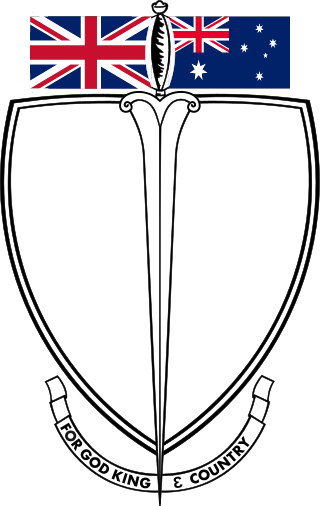
The New Guard was an Australian fascist paramilitary organisation during the Great Depression. It was the largest and most successful fascist organisation in Australian history.

Cricket Australia (CA) is the governing body for professional and amateur cricket in Australia. It was originally formed in 1905 as the 'Australian Board of Control for International Cricket'. It is incorporated as an Australian Public Company, limited by guarantee.

Arthur Edward Moore was an Australian politician. He was the Country and Progressive National Party Premier of Queensland, from 1929 to 1932. He was the only Queensland Premier not to come from the ranks of the Labor Party between 1915 and 1957. Although successful in achieving the unity of the conservative forces in Queensland for an extended period, Moore's abilities were tested by the onset of the Great Depression and like many other governments in Australia and elsewhere his was unable to endure the formidable challenges it posed.
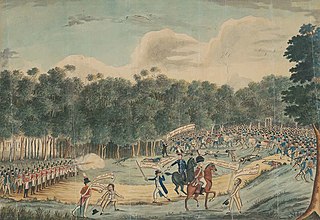
The Castle Hill convict rebellion was a convict rebellion in Castle Hill, Sydney, then part of the British colony of New South Wales. Led by veterans of the Irish Rebellion of 1798, the poorly armed insurgents confronted the colonial forces of Australia on 5 March 1804 at Rouse Hill. Their rout in the resulting skirmish was hailed by as loyalists as "Australia's Vinegar Hill" after the 1798 battle of Vinegar Hill, where Society of United Irishmen rebels were decisively defeated. The incident was the first major convict uprising in Australian history to be suppressed under martial law.

Charles Edward Chauvel OBE was an Australian filmmaker, producer, actor and screenwriter and nephew of Australian army General Sir Harry Chauvel. He is noted for writing and directing the films Forty Thousand Horsemen in 1940 and Jedda in 1955. His wife, Elsa Chauvel, was a frequent collaborator on his filmmaking projects.
The Logos Foundation was an influential and controversial Christian ministry that flourished in Australia in the 1970s and 1980s under the leadership of Howard Carter, originally a Baptist pastor from Auckland, New Zealand. Logos Foundation was initially a trans-denominational charismatic teaching ministry, primarily Protestant but with some ties to Catholic lay groups and individuals.
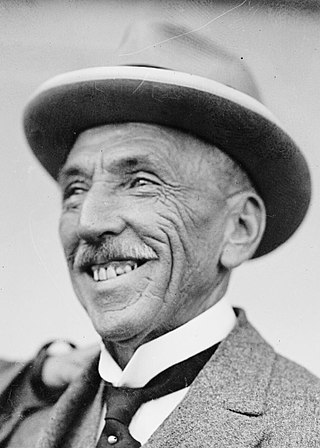
The 1919 Australian federal election was held on 13 December 1919 to elect members to the Parliament of Australia. All 75 seats in the House of Representatives and 19 of the 36 seats in the Senate were up for election. The incumbent Nationalist Party government won re-election, with Prime Minister Billy Hughes continuing in office.
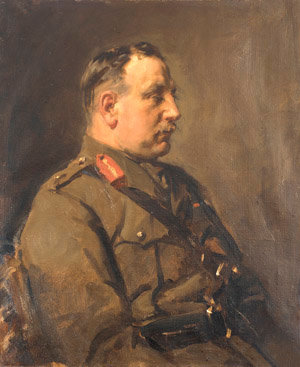
Major General Sir Charles Rosenthal was an Australian architect, soldier, musician and politician. He commanded units of infantry in the Australian Imperial Force during the First World War, and in the 1920s was elected as a member of the New South Wales Legislative Assembly.
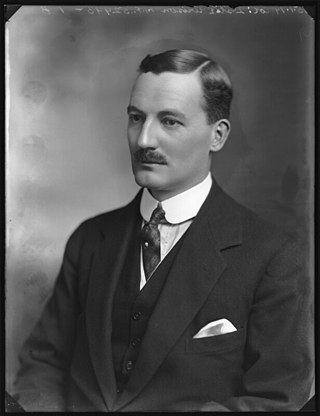
Sir Leslie Orme Wilson, was a British Royal Marines officer, Conservative politician, and colonial governor. He served as Governor of Bombay from 1923 to 1926 and as Governor of Queensland from 1932 to 1946.

The All for Australia League (AFAL) was an Australian political movement during the Great Depression. It was founded in early 1931 and claimed to have amassed 130,000 members by June 1931. Right-wing and anti-establishment in nature, the league had the backing of a number of prominent businessmen and industrialists. It was critical both of the Labor Party and the right-wing Nationalist Party. It primarily operated in Sydney, but also had branches in country New South Wales and absorbed a similar organisation in Victoria. The league eventually chose to co-operate with the existing Nationalist organisation at the 1931 federal election, helping preselect candidates for the new United Australia Party (UAP). After the election victory the league was absorbed by the UAP's state organisation.

Michael Kmit was a Ukrainian painter who spent twenty-five years in Australia. He is notable for introducing a neo-Byzantine style of painting to Australia, and winning a number of major Australian art prizes including the Blake Prize (1952) and the Sulman Prize. In 1969 the Australian artist and art critic James Gleeson described Kmit as "one of the most sumptuous colourists of our time".
Andrew Moore is an Australian historian and academic, a specialist in Australian right-wing politics. He has taught at the University of Sydney, The University of New South Wales, England's University of Lincoln and the University of Western Sydney. His areas of expertise include Twentieth Century Australian History, Irish-Australian history and social history of sport, especially rugby league football. Moore is a leading expert on both the New Guard and the Old Guard.
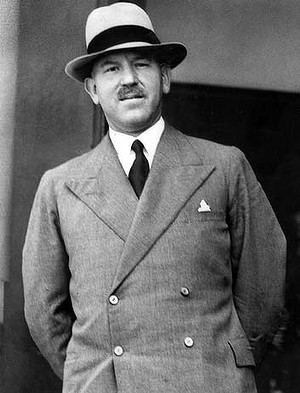
Eric Campbell, was an Australian army officer and later a solicitor who was the leader of the far-right organisation, the New Guard in New South Wales.
The Old Guard was an Australian anti-communist organisation which was founded in 1930 and was primarily active in New South Wales. Its exact origins are disputed. At least one historian has claimed that it existed as early as 1917. It has been described as a paramilitary, quasi-official, vigilante, anti-communist organisation.

The Centre Party, or the Centre Reform Group, and occasionally referred to as the Centre Movement, was a short-lived extreme-right political party that operated in the Australian state of New South Wales. Founded in December 1933, the party's leader and most prominent figure was Eric Campbell, the leader of the paramilitary New Guard movement. That organisation had been established to oppose what its members perceived as the socialist tendencies of Jack Lang, the Premier of New South Wales, but declined following Lang's dismissal in early 1932. The party, unlike most fascist-oriented parties in Europe, acted as a wing of its more prominent paramilitary arm.
Far-right politics in Australia describes authoritarian ideologies, including fascism and White supremacy as they manifest in Australia.
















